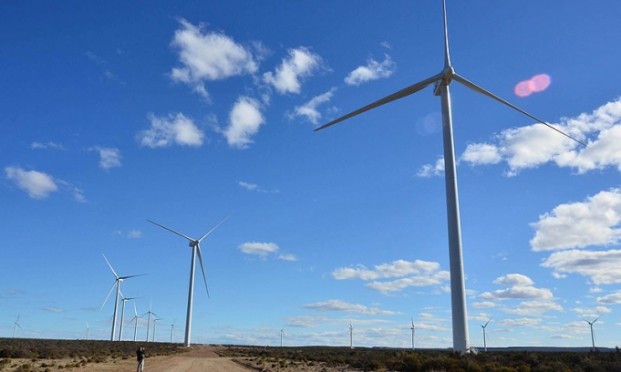In an interview with the Herald, senior climate change specialist at the Inter-American Development Bank (IDB) Claudio Alatorre said the costs of renewables have been dropping but changes on the rules that govern local electricity grids must be implemented across the region.
Many countries in the region, including Argentina, still rely on fossil fuels. Do you see that scenario changing in the near future?
Relying on fossil fuels can be a curse rather than a blessing. There are negative economic effects of depending on a non-renewable resources and some countries are now working to avoid them. But I find it difficult to tell the Argentine government not to exploit its resources for the sake of the planet when other countries aren’t making that sacrifice.
Countries have long used the high cost of renewables as a reason not to develop them…
There’s a myth that renewable energy is more expensive and some insist it’s something that could work in remote communities but not in big cities. That’s completely wrong. Renewables are the most economic option, independent of climate change. Costs have dropped enormously over the last few years, making renewables competitive with all other energy options.
But if they’re cheaper, why aren’t renewables more popular?
The rules that govern electricity grids are based on the past and they favour technologies of the past. If we changed them so they are more general and equitable for all technologies, renewable energy sources would be winning the race.
Are any countries of the region carrying out that switch?
Uruguay is a pioneer in renewable energy resources and it’s on the way of being the country with the most wind power in the world. Uruguay doesn’t need electricity systems working 24 hours a day since it can use intermittent technologies such as wind and solar and import energy from Brazil and Argentina when needed. It will implement a metered system in which the price varies per minute depending on the energy available in the system.
What can countries do to change the way their electricity systems operate?
The basic rules have to change. If a government launches a tender to build a new power plant, for example, it shouldn’t require that it have the capacity to provide power all day long. It also should consider long-term fixed prices. Renewables can guarantee those prices while other technologies can’t, which also makes renewables more competitive.
Are you optimistic this could take place in the near future?
If the electricity systems rules are changed to acknowledge these facts, renewable energy sources will automatically start to grow in the region. Uruguay is proof that it can be done.
Argentina’s Lower House of Congress will soon start debate on a renewable energy bill that recently passed the Senate and outlines a requirement that the electricity grid must have a certain percentage of its power come from renewables. Is that a step in the right direction?
Yes. When you can’t change all the rules at once, at least doing this kind of things help. In many countries setting up goals is what ends up encouraging a broader change.
Could renewable sources supply most of the energy in the region?
They could actually supply 100 percent of the demand in the region. Argentina has great potential for wind power but it needs to develop infrastructure to take advantage of that. It also can use more solar power in the north and install more hydroelectric plants. Latin American countries can’t afford to shut down power plants that are still operational and replace them with new ones. But they can set the objective of not building new plants that are powered by fossil fuels.
What do you think of what Argentina has done so far regarding renewable energy sources?
Argentina has made some progress when it comes to wind power but there’s still a lot more to be done even if it is in a much better position than others in the region.
http://www.buenosairesherald.com


